Mark Anthony Neal's Blog, page 626
April 15, 2016
Siyanda Mohutsiwa: How Young Africans Found a Voice on Twitter
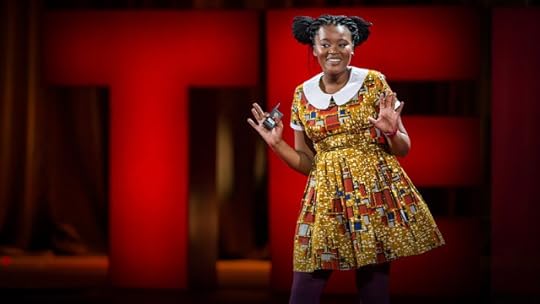 'What can a young woman with an idea, an Internet connection and a bit of creativity achieve? That's all Siyanda Mohutsiwa needed to unite young African voices in a new way. Hear how Mohutsiwa and other young people across the continent are using social media to overcome borders and circumstance, accessing something they have long had to violently take: a voice.' -- +Ted Talks
'What can a young woman with an idea, an Internet connection and a bit of creativity achieve? That's all Siyanda Mohutsiwa needed to unite young African voices in a new way. Hear how Mohutsiwa and other young people across the continent are using social media to overcome borders and circumstance, accessing something they have long had to violently take: a voice.' -- +Ted Talks
Published on April 15, 2016 22:01
William 'Sandy' Darity, Jr.: The Role of Wealth as a Driver of Structural Racism
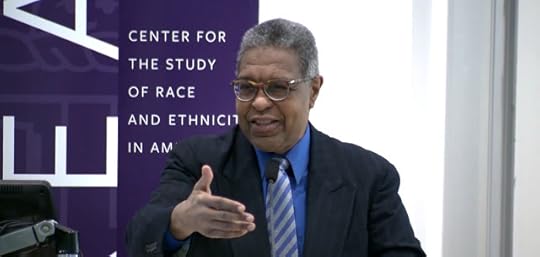 Duke University Professor William "Sandy" Darity, Jr., the Samuel DuBois Cook Professor of Public Policy at the Sanford School of Public Policy, discusses the role of wealth in the production of structural racism, at The Center for the Study of Race and Ethnicity in America at Brown University. -- +Brown University
Duke University Professor William "Sandy" Darity, Jr., the Samuel DuBois Cook Professor of Public Policy at the Sanford School of Public Policy, discusses the role of wealth in the production of structural racism, at The Center for the Study of Race and Ethnicity in America at Brown University. -- +Brown University
Published on April 15, 2016 21:48
Comic W. Kamau Bell on Standing Tall And Finding Humor In America's Racism
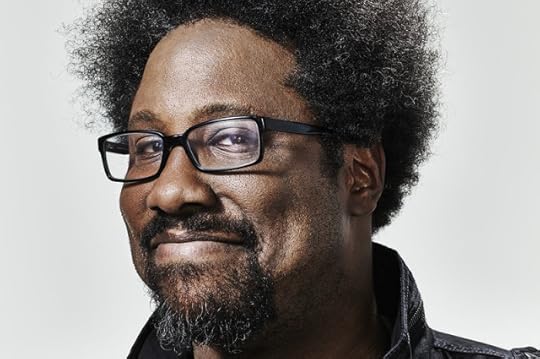 'Comedian W. Kamau Bell attends a Ku Klux Klan gathering and a cross-burning on his new series, United Shades of America. He describes the series as a travel show that takes him to places he is afraid to go.' -- +NPR
'Comedian W. Kamau Bell attends a Ku Klux Klan gathering and a cross-burning on his new series, United Shades of America. He describes the series as a travel show that takes him to places he is afraid to go.' -- +NPR
Published on April 15, 2016 21:24
Trailer: Nate Parker's 'The Birth of a Nation'
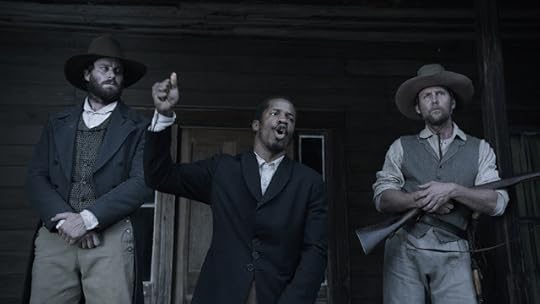 'Set against the antebellum South, The Birth of a Nation, follows Nat Turner (Nate Parker), a literate slave and preacher, whose financially strained owner, Samuel Turner (Armie Hammer), accepts an offer to use Nat’s preaching to subdue unruly slaves. As he witnesses countless atrocities - against himself and his fellow slaves - Nat orchestrates an uprising in the hopes of leading his people to freedom.'
'Set against the antebellum South, The Birth of a Nation, follows Nat Turner (Nate Parker), a literate slave and preacher, whose financially strained owner, Samuel Turner (Armie Hammer), accepts an offer to use Nat’s preaching to subdue unruly slaves. As he witnesses countless atrocities - against himself and his fellow slaves - Nat orchestrates an uprising in the hopes of leading his people to freedom.'
Published on April 15, 2016 21:18
'It's So, So Complicated': Kerry Washington On Clarence Thomas' 'Confirmation'
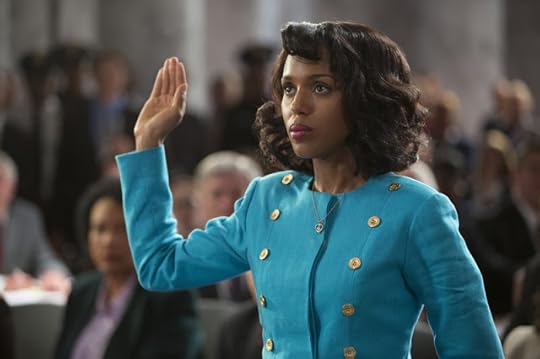 'In 1991, a political drama mesmerized the nation. A law professor named Anita Hill had made a stunning accusation — that Clarence Thomas, then a Supreme Court nominee, had sexually harassed her when she worked for him at the Equal Employment Opportunity Commission. The events that ensued are now the subject of the HBO film Confirmation, which premieres Saturday at 8 p.m. ET. Kerry Washington, who you probably know best as Olivia Pope on Scandal, plays Hill, who was very reluctant to reveal this decade-old secret.' -- +NPR
'In 1991, a political drama mesmerized the nation. A law professor named Anita Hill had made a stunning accusation — that Clarence Thomas, then a Supreme Court nominee, had sexually harassed her when she worked for him at the Equal Employment Opportunity Commission. The events that ensued are now the subject of the HBO film Confirmation, which premieres Saturday at 8 p.m. ET. Kerry Washington, who you probably know best as Olivia Pope on Scandal, plays Hill, who was very reluctant to reveal this decade-old secret.' -- +NPR
Published on April 15, 2016 16:14
Mark Anthony Neal: Opening Up The Educational Space For The 21st Century
 'Duke University Professor Dr. Mark Anthony Neal discusses effective ways to open the education space for 21st century learning. Dr. Neal, who teaches African and African-American studies, urges educators to recognize that a one-size-fits-all approach to teaching is ineffective. Instead, educators should listen to students and teach in ways that students view culture, he advises. That approach requires teachers to step outside their comfort zone.' -- +NewsOne Your browser does not support iframes.
'Duke University Professor Dr. Mark Anthony Neal discusses effective ways to open the education space for 21st century learning. Dr. Neal, who teaches African and African-American studies, urges educators to recognize that a one-size-fits-all approach to teaching is ineffective. Instead, educators should listen to students and teach in ways that students view culture, he advises. That approach requires teachers to step outside their comfort zone.' -- +NewsOne Your browser does not support iframes.
Published on April 15, 2016 15:37
Black Food Matters: Vegan Eco-Chef Bryant Terry Shares Recipe for Food Justice
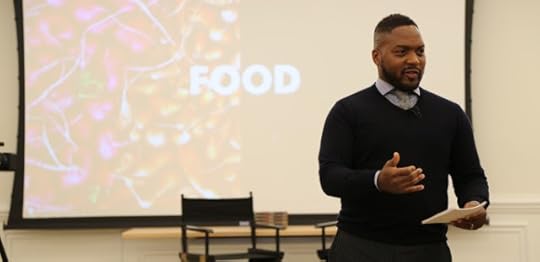 Black Food Matters: Vegan Eco-Chef Bryant Terry Shares Recipe for Food Justice
by Camille Jackson | @Camille225 | special to NewBlackMan (in Exile)
Black Food Matters: Vegan Eco-Chef Bryant Terry Shares Recipe for Food Justice
by Camille Jackson | @Camille225 | special to NewBlackMan (in Exile)Kale, mustard greens, dandelion greens, black eyed peas, broccoli rabe.
These are foods many of our grandparents ate and grew in their gardens decades ago that are now enjoying a resurgence as people begin to embrace healthy, farm fresh meals.
Fast food alters the taste buds, said Bryant Terry, an award-winning chef, educator, author and TV personality. Terry is the author of several books including Afro-Vegan: Farm-Fresh African, Caribbean, and Southern Flavors Remixed . He is currently the Chef-in-Residence at the Museum of the African Diaspora (MoAD) in San Francisco.
More than two dozen people attended Terry’s talk Monday evening at Duke’s John Hope Franklin Center, organized by Left of Black host Mark Anthony Neal. Neal is also the director of the Center for Arts, Digital Culture and Entrepreneurship.
During his talk, Terry encouraged the audience be more attentive to food issues, to grow their own food and to connect with the food justice movement in their own communities.
“I want people to think about these issues in the context of their personal lives and community. It’s about structural issues, not just individual transformation,” said Terry who began his career as a grassroots activist railing against the industrialization of pre-packaged and processed food.
“I’m pretty sure I’m the only guest on the Martha Stewart Show who talked about food justice,” Terry said.
His philosophy on introducing people to the food justice movement is to “start with the visceral to unite the cerebral and end with the political.”
“Heady intellectual ideas don’t resonate with everyone. For some, it’s a farm fresh meal, memories of cooking with grandparents, could be a conversation with a fast food worker,” he said.
He became politicized around food as a high school student listening to KRS-One’s “Beef,” a rap song about factory farming. And he also read The Jungle by Upton Sinclair on the horrors of the meat-packing industry.
As a college student attending NYU, Terry saw young children drinking soda and energy drinks in the morning before school. “This was their breakfast” he said, noting the link between academic performance, behavior and nutrition.
“The larger social justice movement would be remiss not to talk about the connection between healthcare issues and nutrition. Food justice and social justice are inextricably linked,” he said.
Neal raised the issue that some complain that fast food is much cheaper than healthy foods. Terry pointed to multinational corporations subsidized by the government.
“If the government supported young farmers and subsidized them, healthy food would also be cheap,” he said.
“Major companies market to kids as young as 2-years old,” he said. “They are spending more on marketing than on the product. It’s a form of psychic violence.”
When he started his ‘Be Heathy’ program, his young students didn’t even know where carrots came from.
“I wanted to raise their food I.Q. and to get them to think more critically about food. And I learned that when they prepared things, they ate it,” he said, realizing the connection between food, health and self-empowerment.
Making a meal from scratch, having a garden or a farm — these are things people in the community already know how to do, he said.
His web series, Urban Organic, explores the connections between food, health and technology. The first episode featured a tour of an Oakland, Calif. aquaponics farm. “You can do a lot with a little land,” he said.
“We need a holistic understanding around these issues and a sea change. We should be owning our own land, providing healthy, fresh food, employing people and beautifying the community.”
For more information about Terry, visit www.bryant-terry.com.
Published on April 15, 2016 12:22
Left of Black S6:E25: Diversity + Excellence & Protest at the Elite University
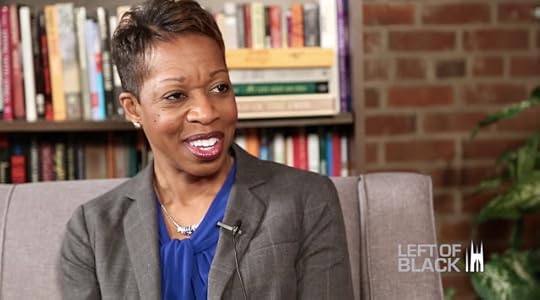 Left of Black S6:E25: Diversity + Excellence & Protest at the Elite University
Left of Black S6:E25: Diversity + Excellence & Protest at the Elite UniversityLeft of Black host and Duke University Professor Mark Anthony Neal (@NewBlackMan) is joined in-studio by Dr. Valerie Ashby, Dean of Trinity College of Arts & Sciences at Duke University. A noted chemist, Professor Ashby discusses her ascension through the profession as a Black Woman, how the pursuit of diversity is not antithetical to the pursuit of excellence, and the student protests that have taken place across the country.Left of Black is a weekly Webcast hosted by Mark Anthony Neal and produced in collaboration with the John Hope Franklin Center at Duke University and in conjunction with the Center for Arts, Digital Culture & Entrepreneurship (CADCE).
***
Episodes of Left of Black are also available for free download in @ iTunes U
***
Follow Left of Black on Twitter: @LeftofBlack
Published on April 15, 2016 06:39
April 14, 2016
What About Us? The Enduring Legacy of Jodeci by Lawrence Ware
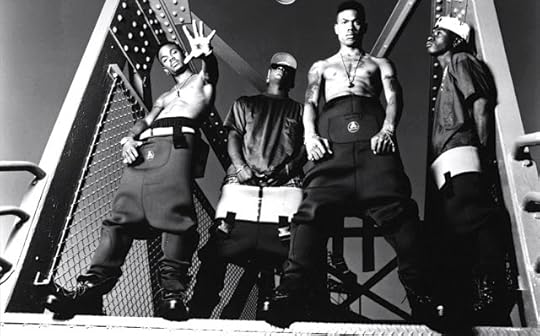 What About Us? The Enduring Legacy of Jodeciby Lawrence Ware | @Law_Ware | NewBlackMan (in Exile)
What About Us? The Enduring Legacy of Jodeciby Lawrence Ware | @Law_Ware | NewBlackMan (in Exile)For some, spring brings Easter to mind. The blooming flowers and budding trees remind them of the resurrection and (in the words of an old preacher) that he got up early on Sunday morning. For others, it may be the beginning of baseball season or the college basketball madness that March brings. That’s not what spring brings to mind for me. I think of K-Ci, JoJo, Mr. Dalvin and DeVante Swing.
I discovered Jodeci late. Their debut studio album Forever My Lady was released in August of 1991, and I didn’t discover them until March of 1992. My mom was not a big fan of ‘secular’ music, so I had to sneak a tape of the album into the house by hiding it in a pocket of the Trapper Keeper I carried in my book bag.
For good measure, I had my friend Tay put small pieces of balled up paper in the top of an old Commissioned cassette, thereby allowing me to get a copy of the album without raising the suspicions of my mother. We did this many times. I would later get copies of Biggie’s Ready to Die and Snoop’s Doggystyle using similar Trapper Keeper cassette trickery. I snuck into my room and listened to the album on a yellow Walkman Sport. The tape was a little wet because Tay gave it to me as we walked in the rain to catch our respective bus home. Everyone was talking about the group at school, and I was eager to listen when I got home. To put it mildly, the tape didn’t disappoint.
Jocdeci was like nothing I’d ever heard before; yet, the group sounded exactly like everything I loved. They married the vocal stylings of gospel with subject matter that would make a first lady blush. They harmonized over new jack beats, and expressed emotion in a way that fit my still developing understandings of black masculinity. They were everything I didn’t know I wanted in a group.
I was familiar with BoyzIIMen and that group was an easy point of comparison for Jodeci. Their Cooleyhighharmony debuted in February of 1991, and, somehow, my mother allowed me to listen to the album. It may have been BoyzIIMen’s old school feel. They were a throwback to an older time in R&B in that you could put the four of them in front of a mic and they would make beautiful music. The group played with a new jack sound in songs like “Motownphilly” and the later “Thank You”, but that sonic profile was not their musical identity. Songs like “It’s So hard to Say Goodbye to Yesterday” from 1991 and “End of the Road” from 1992 solidified their sound. They were good; they were talented, but they embodied the preferences of previous generations.
I now know that Jodeci was not the first to make soulful music grounded in an urban and gospel sound, but for a black kid sheltered from ‘worldy music,’ Jodeci was revolutionary. They have also proven to be influential.
Hip Hop artists like Jay-Z and Big K.R.I.T. have mentioned the group in their lyrics and sampled their work in their songs. Drake’s soulfully vocalized flow is deeply indebted to Jodeci and J.Cole’s melodically atmospheric approach to hip hop channels the DeVante Swing approach to musical composition. To the chagrin of many, contemporary R&B is more inspired by the likes of Jodeci than BoyzIIMen. The days of simple balladry in R&B have given way to an, at times, complex relationship with hip hop. Jodeci foreshadowed the genre bending we now see from artists like Future, Young Thug, and Kanye West. For better or worse, they were part of the move away from the lush R&B of the 80s to the edgy sound ubiquitous today.
Jodeci remains my favorite R&B group—even if their most recent effort, 2015’s The Past, the Present, the Future, was decidedly underwhelming. Their musical brilliance and unapologetic embodiment of urban black cool made way for many who came thereafter. Jodeci was more than just two sets of brothers from the south, they helped redefine the sound of black music—and black culture has never been the same.
***
Lawrence Ware is an Oklahoma State University Division of Institutional Diversity Fellow. He teaches in OSU’s philosophy department and is the Diversity Coordinator for its Ethics Center. An advisor to Democratic Left and contributing editor at RS: The Religious Left, he has also been a commentator on race and politics for the Huffington Post Live, NPR’s Talk of the Nation, and PRI’s Flashpoint. He is an ordained minister in the Progressive Baptist Convention. Find him on Twitter @law_ware.
Published on April 14, 2016 17:10
Confirmation: Kerry Washington on Historical Impact of the Clarence Thomas + Anita Hill Case
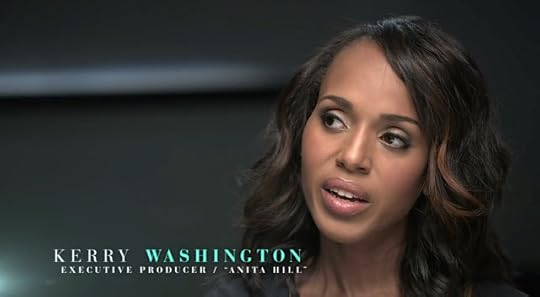 Actor Kerry Washington discusses the historical relevance of the Anita Hill - Clarence Thomas case. Washington is Executive Producer of Confirmation, the HBO film based on the events.
Actor Kerry Washington discusses the historical relevance of the Anita Hill - Clarence Thomas case. Washington is Executive Producer of Confirmation, the HBO film based on the events.
Published on April 14, 2016 16:30
Mark Anthony Neal's Blog
- Mark Anthony Neal's profile
- 30 followers
Mark Anthony Neal isn't a Goodreads Author
(yet),
but they
do have a blog,
so here are some recent posts imported from
their feed.



